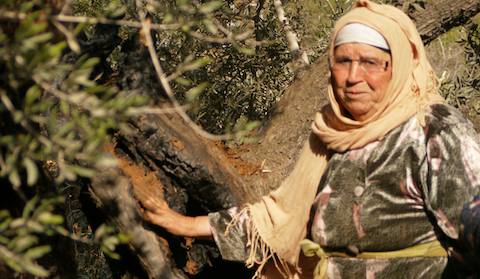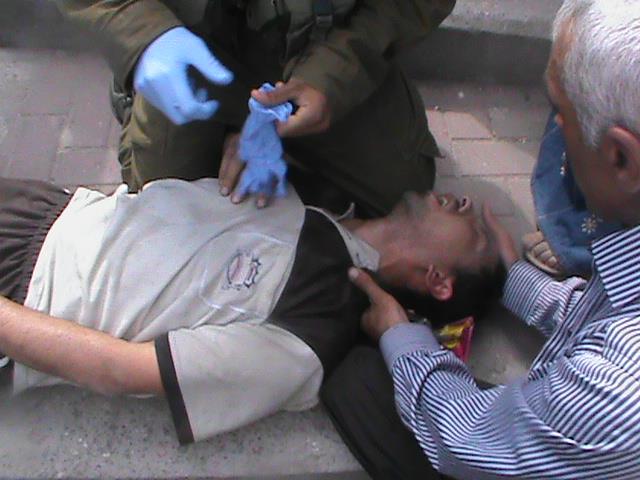Tag: Olive harvest
-
Arson Attack on Olive Trees in Qaryut
14 October 2012 | International Solidarity Movement, West Bank Latif Ali with one of her trees that were destroyed. Last night in the West Bank village of Qaryut, 12 Palestinian owned olive trees were irreparably destroyed in a late night arson attack by Israelis from the illegal West Bank settlement of Eli. The attack follows…
-
Settlers Attack and Injure Palestinians Harvesting Olives in Tel Rumeida
12 October 2012 | International Solidarity Movement, West Bank In two separate incidents on Wednesday 10th and Friday 12th October 2012 settlers from the illegal settlement in Tel Rumeida, Hebron stole olives from two trees belonging to Jawad Abu Eisheh and attacked his family whilst they attempted to harvest from their land. Between 2pm and…
-
Call to action: Olive Harvest 2012
18 August 2012 | International Solidarity Movement, West Bank At a time of increasing settler violence in the West Bank, the International Solidarity Movement is issuing an urgent call for volunteers to participate in the 2012 Olive Harvest Campaign at the invitation of Palestinian communities. The olive tree is a national symbol for Palestinians. As thousands of…


